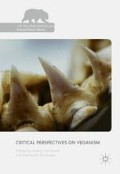Abstract
Emmanuel Levinas criticizes “the Hegelian enterprise” for ignoring the ethical significance of the “residue” that is not “reducible” to the work of “the Concept” [der Begriff], and for configuring that labor as an expression of the subject’s sovereign potency.1 Of the Encyclopaedia Logic’s pretensions to totality, Levinas writes: “[I]f philosophizing consists in assuring oneself of an absolute origin, the philosopher will have to efface the trace of his own footsteps and unendingly efface the traces of the effacing of the traces, in an interminable methodological movement of staying where it is” (OB 20). The heroic virility of this Sisyphean task blinds the philosopher to the ungraspable remnant haunting speculative idealism’s claim to absolute self-sufficiency as its interior limit. Philosophy faces there its radical opening toward an alterity that Levinas identifies with the subject’s defenselessness before the hunger of the other. Yet Hegel denies any such liability with a brawny rhetoric of self-possession: “In fact one cannot think for someone else, any more than one can eat or drink for him.”2 Levinas insists that far from validating the project’s presence of mind, Hegel’s claim to eat and think for himself renders him infinitely vulnerable to the other’s vulnerability. “Only a subject that eats can be for-the-other,” Levinas argues, comparing this dietary self-unraveling to “snatching the bread from another’s mouth” (OB 74). Levinas is offended that Hegel proceeds as if he could eat alone and leave no traces, not even of their erasure; he fails to recognize that in his “mouth there remains the word or the morsel of bread that it is impossible for me not to give to…my neighbour.”3
This essay was first published in Cultures of Taste/Theories of Appetite: Eating Romanticism, ed. Timothy Morton (New York: Palgrave, 2004), 115–139. It is being reproduced here by permission of the publisher.
Author information
Authors and Affiliations
Corresponding author
Editor information
Editors and Affiliations
Rights and permissions
Copyright information
© 2016 The Author(s)
About this chapter
Cite this chapter
Clark, D.L. (2016). Hegel, Eating: Schelling and the Carnivorous Virility of Philosophy. In: Castricano, J., Simonsen, R.R. (eds) Critical Perspectives on Veganism. The Palgrave Macmillan Animal Ethics Series. Palgrave Macmillan, Cham. https://doi.org/10.1007/978-3-319-33419-6_5
Download citation
DOI: https://doi.org/10.1007/978-3-319-33419-6_5
Published:
Publisher Name: Palgrave Macmillan, Cham
Print ISBN: 978-3-319-33418-9
Online ISBN: 978-3-319-33419-6
eBook Packages: Religion and PhilosophyPhilosophy and Religion (R0)

